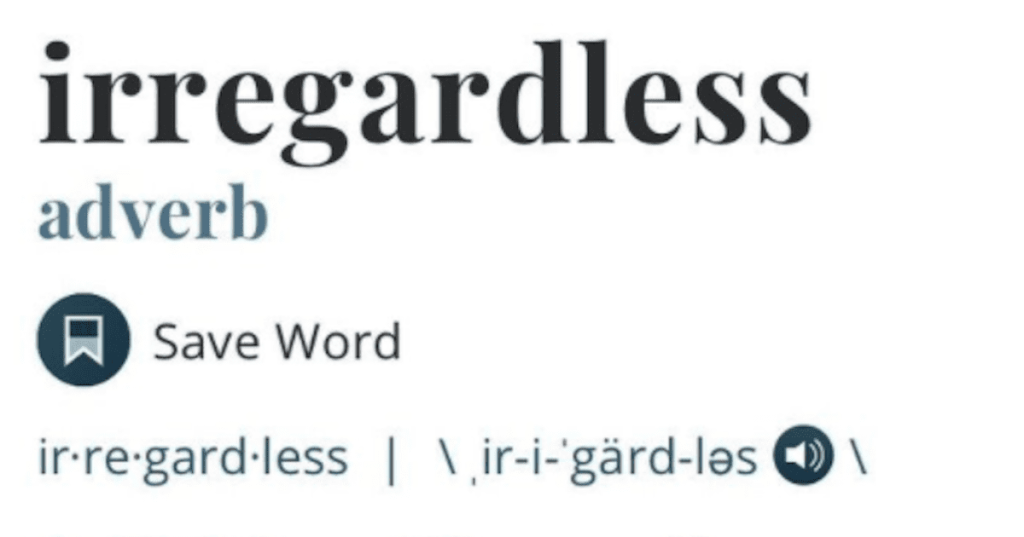Perhaps no word invokes such disdain from grammar enthusiasts quite like irregardless.
Defenders of lexicon think those that use irregardless in regular conversation are committing a sin.

Photo Credit: Pexels
Those who defend it will drop it in a sentence without a second thought.
Thanks to Merriam-Webster, we now know that irregardless is indeed a real word.
The dictionary’s staff wrote in a “Words of the Week” roundup on Friday…
“Irregardless is included in our dictionary because it has been in widespread and near-constant use since 1795.
We do not make the English language, we merely record it.”
The dictionary defines irregardless as “nonstandard” but many people find its existence unnecessary.

Photo Credit: Pexels
In fact, author and English teacher Michelle Ray flat-out scorned the word.
“It’s not a real word. I don’t care what the dictionary says.”
When teachers get that upset about a word, we should all listen, right?

Photo Credit: Pexels
Though many think the controversial word just became a new addition to Merriam-Webster, that’s actually not the case. A spokesperson told NPR that it was first included in 1934.
In 1859, The Baltimore Sun published a piece that included irregardless. The newspaper followed up with another instance recently from editor John McIntyre.
He tells NPR,
“People get upset about the dictionary because they think it is some sort of official document.
And it’s not. It’s just lexicographers identifying words that people use and trying to find out, well, how are they spelled?
How are they pronounced? What meanings do they have? Where did they come from?”

Photo Credit: Pexels
Ultimately, most English teachers will tell students to never use irregardless. But if you believe in Merriam-Webster, then feel free to say and write it as often as you please.
What side of the irregardless debate do you fall on? Tell us why in the comments below!






